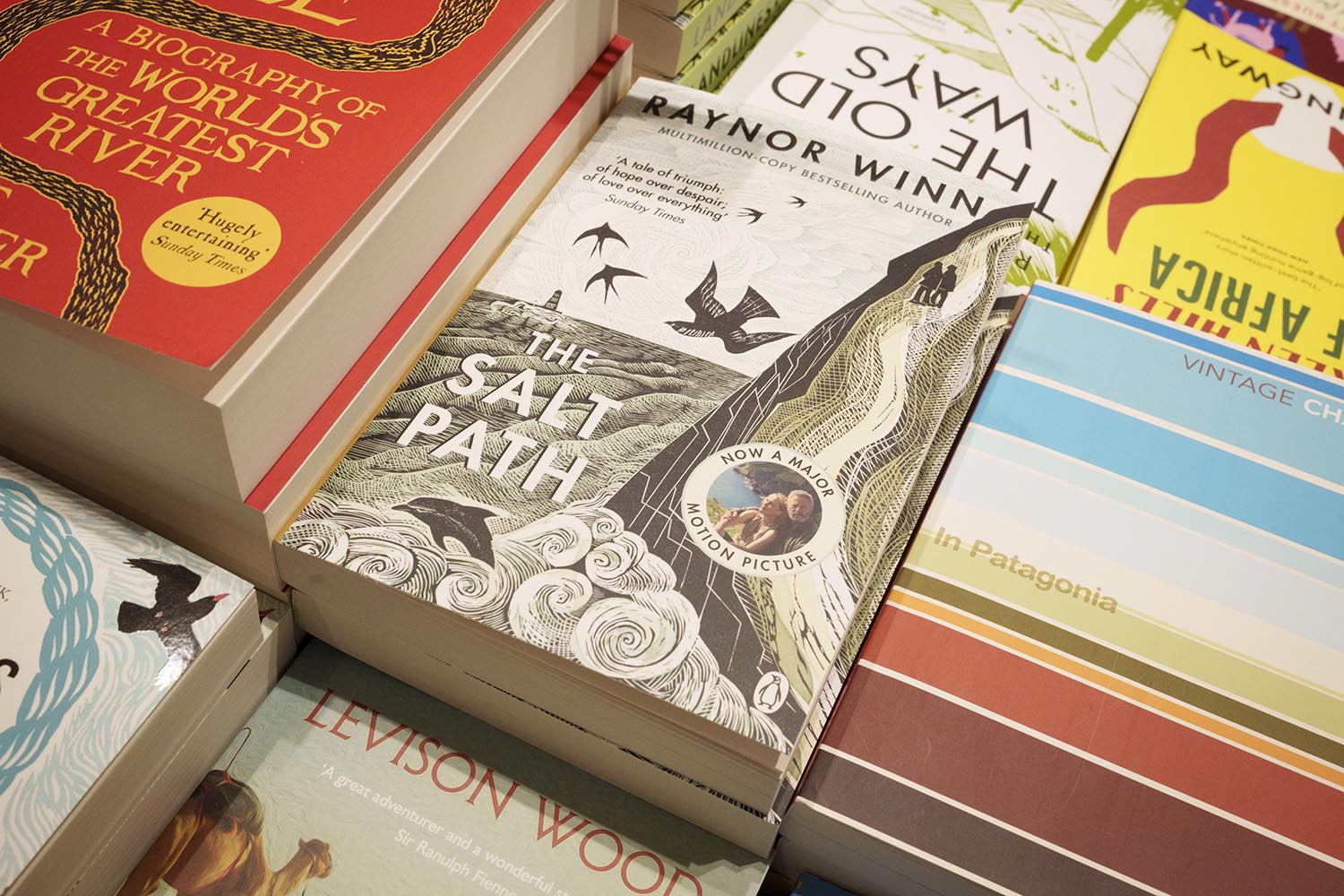Back in 2013, when Raynor Winn first learned that her husband, Moth, had a terminal neurological condition, she was reminded of her mother’s death. She wrote: “I’d been through the choking horror six months earlier, as my Mother fought for breath that wouldn’t come. My sister and I sitting either side of her in the dying room.”
You would be forgiven for not recalling this particular incident in Winn’s memoir, The Salt Path, because it never made it into the published book. Those lines are taken from a 2017 pre-publication manuscript, obtained by The Observer, which still carries its original title, Lightly Salted Blackberries. It appears in her second book, The Wild Silence, published in September 2020, in which she claims it happened years later.
Penguin now says this later account is accurate chronologically but doesn’t indicate whether it had requested the change.
And alongside the year Winn’s mother died there’s another anomaly: the date of Moth’s initial diagnosis with a terminal condition.
Winn has said it was in 2013, but a description on the back cover of The Wild Silence, seems to place it later: “In 2016, days before they were unjustly evicted from their home, Raynor Winn was told her husband Moth was dying.”
A medical letter released by Winn in an attempt to answer some of the questions raised by The Observer’s investigation into The Salt Path only adds to the mystery. It seems to locate the first diagnosis in 2015.
Discrepancies between this early manuscript and the published book, and apparent changes to the disclaimer and description on the cover of various editions of The Salt Path and The Wild Silence, raise serious questions about Penguin’s processes. An investigation by The Observer last month showed that Winn had distorted her origin story to hide the fact that she lost her home after allegations that she had stolen tens of thousands of pounds from her employer. Closer scrutiny of Winn’s books has brought into focus her publisher, Penguin (Michael Joseph).
Philip Jones, editor of the industry magazine The Bookseller, says Penguin “would do well to explain their processes”. He points to a dangerous erosion of trust that could result from these kinds of scandals.
“No one trusts journalists; no one trusts social media. I think this gives book publishers an opportunity to lean into that a bit,” he says. “Instead, they can sometimes appear too hands off.”
One such question revolves around the unusually long disclaimer in The Salt Path which states: “This book is a work of non-fiction based on the life of the author. In some limited cases, the names of people or detail of places or events have been changed to protect the privacy of others. The author has stated to the publishers that, except in such respects, the contents of this book are true.”
Newsletters
Choose the newsletters you want to receive
View more
For information about how The Observer protects your data, read our Privacy Policy
Several people who work in the publishing industry have said that this disclaimer is unusual in scope and size. It goes on to include a n additional medical note warning the reader that the author and publishers take no legal responsibility for “the use, or misuse, of any information contained in this book”.
“ The medical line does suggest that there were at least discussions in-house about the mysterious medical condition,” one publishing veteran told The Observer.
The publisher has previously said it carried out all due diligence, had not received any concerns about the book prior to The Observer’s story and that it had a contract with Winn regarding factual accuracy.
Penguin declined to confirm whether this was the same manuscript that Winn presented it with. But it did say that the 2016 date on the back of The Wild Silence was a typographical error that will now be amended. The Observer received no response from Winn’s agent, Jennifer Christie of Graham Maw Christie Literary Agency, or from Raynor Winn herself.
“ There is still an attitude that [accuracy] is 100% the author’s responsibility and 0% the publisher’s because it’s under their name, not ours,” says an editor who has previously worked for Penguin.
However, Jones of The Bookseller says the current crisis at Penguin is unlikely to bring about any significant changes in the industry, primarily because sales of The Salt Path seem to have been unaffected. “It’s embarrassing for Penguin coming during their 90th year, but for book publishers the equation is whether the damage to their reputation when these kinds of stories emerge is offset by the book’s commercial success,” he says. “In the cold-hearted age of finance, is it worth reshaping an entire business – including adding cost – because of the embarrassment around one particular title?”
Penguin has delayed the author’s fourth book, which was due to be published in October, but industry insiders The Observer spoke to say they don’t predict that Penguin will take any legal action against Winn. “Maybe they will just quietly let the book go out of print.”

